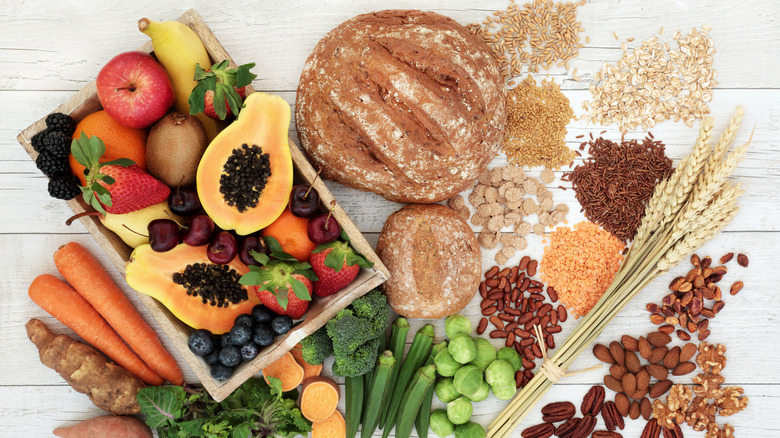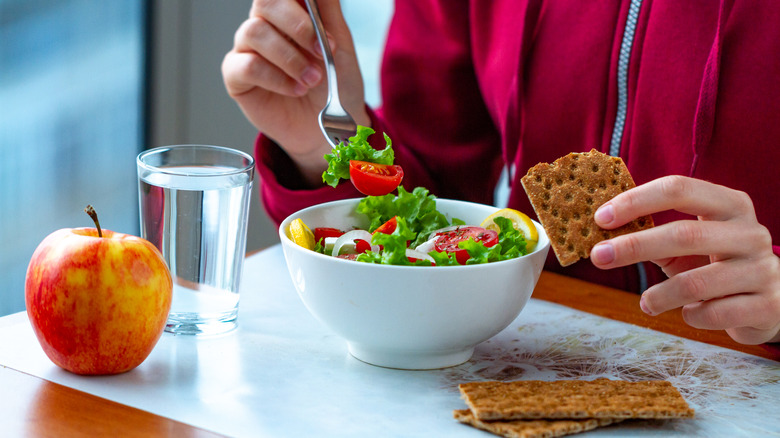This Is What Happens When You Eat Too Much Fiber
We're constantly being reminded to eat more fiber. Products are enriched with it, whole grains are celebrated over white alternatives, supplements are advertised, and not for nothing! The Mayo Clinic notes that fiber contributes to a boost in digestion, improvement in overall health, and weight loss among other benefits. Unfortunately, diets that include a lot of processed meals and fast food naturally don't include much fiber, and the trend towards low-carb, high-fat diets neglects the important role fiber plays in our bodies (via Vox). However, like so much about nutrition and life, it's not so black and white.
The Mayo Clinic notes that common sources of fiber are fruits, vegetables, whole grains, nuts, seeds, and legumes, which are central to raw food, vegan, and vegetarian diets. If you think you should rush to switch your lifestyle, Medical News Today reports that due to the high consumption of fiber these diets regularly entail, they can often lead to unpleasant side effects. The outlet notes that bloating, gas, cramps, and constipation can occur when fiber consumption is in excess of 70 grams per day, and might even start being noticeable at around 40 grams. Keep in mind that the U.S. Food & Drug Administration recommends 28 grams of fiber for a 2000-calorie daily diet. While the average diet usually falls short, it is not uncommon for plant-based diets to overdo it with fiber.
How does fiber behave in the body?
There are two main types of fiber and it is ideal to balance both instead of only focusing on increasing total fiber according to MDLinx. Soluble fiber breaks down in your digestive system and helps things move smoothly (via Medical News Today). On the other hand, the outlet explains that insoluble fiber simply passes through your system adding bulk, which is what we often think of in regards to fiber.
Another issue with adding too much bulk is that certain essential minerals and micronutrients might not be properly absorbed because they bind to fiber and consequently, pass right through you (via MDLinx). This is especially important to remember because we are regularly bombarded with advice to increase our fiber intake, however, aside from physical symptoms, too much fiber can actually be detrimental on a more significant level. Healthline also points out that gastric symptoms and discomfort are especially noticeable if you suddenly increase your intake without adding more water and regular physical exercise.
While the average diet might not illustrate the risk of too much fiber, anyone following a plant-based diet or noticing regular digestive discomfort should assess their consumption. Using a nutrition calculator to get an idea of how much fiber you ingest and reducing it until symptoms ease can be helpful (via Healthline). If you are choosing to add more fiber to your diet, do so slowly, and make a point to drink more water.

